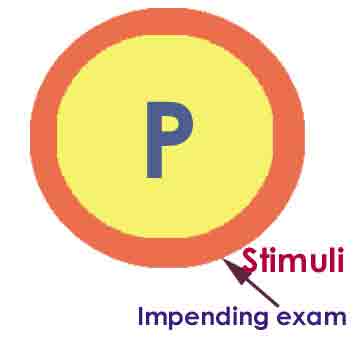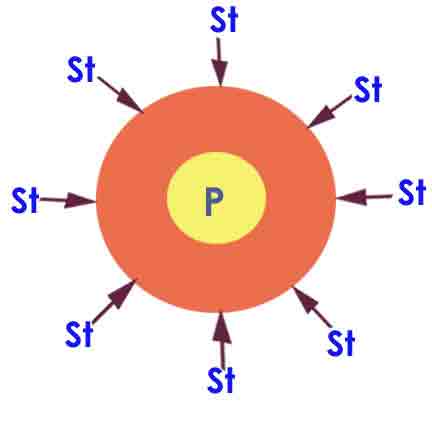|
What is stress?
Stress may be described as
existing stimuli in our milieu, forcing us to function at a higher level of
alertness. These stimuli may be immediate or remote.
For example, during the
study hours an aspiring student concentrates hard. Studying at a higher level
of concentration may be due to an impending examination (immediate stimuli) or
the same might have been motivated by an ambition to be one of the best
doctors in future (remote stimuli). Too much of either may give rise to
stress.
Without stimulus life would
be incredibly dull and monotonous. But too much stimulus makes life unpleasant
and exhausting. Thus too much stress can not only hamper our ability to
perform effectively but also disrupt our health and well being.
One of the best ways to
comprehend stress and its effect is to look upon each individual as a
two-shelled model. The inner shell comprises our potential. Under optimum
condition the inner potential lies in close proximity to the outer shell. This
outer shell is exposed to the various environmental stimuli. Eg. achieving
targets, taking an exam, a promotion from the current status etc.
Existing stimuli lay demand
on the potential to function at a needed level. Thus to cope with the existing
situation the potential expands if necessary right up to the outer shell.
Continued expansion leads to maturation of the persons ability to manage
people and circumstances. Thus for obvious reasons lack of stimuli will lead
to less expansion of a persons potential. Hence all of us need proper stimuli
to motivate us to perform to our fullest potential.
So far so good: The problem
arises when the stimuli in the environment become overwhelming, long drawn and
unmanageable. In this situation the potential fails in the face of immense
demands laid by the environment and it starts to shrink. Nature does not leave
a vacuum, and the effects of stress take up  the
empty space generated: the
empty space generated:
- Anger and Irritability
- Frustration and
Depression
- Fatigue and Exhaustion
- Anxiety and Pessimism
All this compound up to
further decrease our potential which leads to more failure (more generation of
empty space) and increase of the above mentioned effects of overwhelming
stress and pressure. Thus is born a VICIOUS
CYCLE.
This model of stress
generation is vital to the understanding of stress or crisis management, cause
it will help us comprehend better the means and methods available to break the
vicious cycle.
Conclusion: Stress
is like electricity. The right amount of electricity powers our music system,
light our light bulbs and turns on our PC. Too much of the same electricity
blasts out our speakers, burns out our light bulbs, and causes a power surge
that can knock out data on our hard drive.
_________________________________________________
Next up
- Sources of stress (Part I)
|
